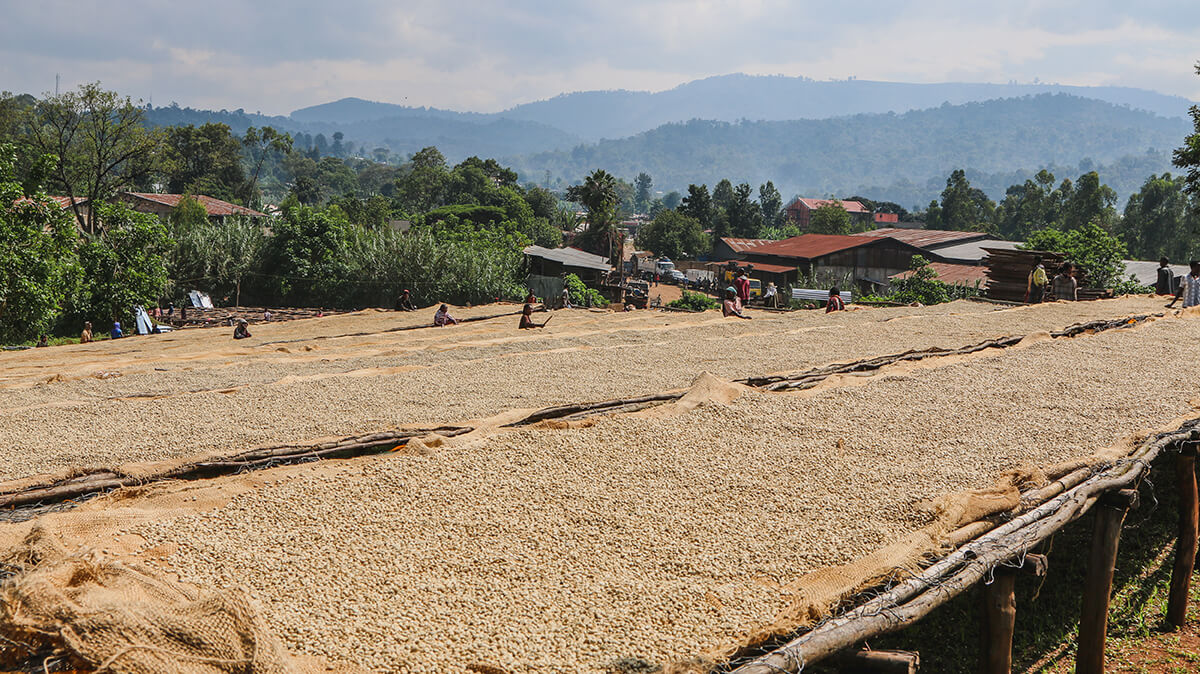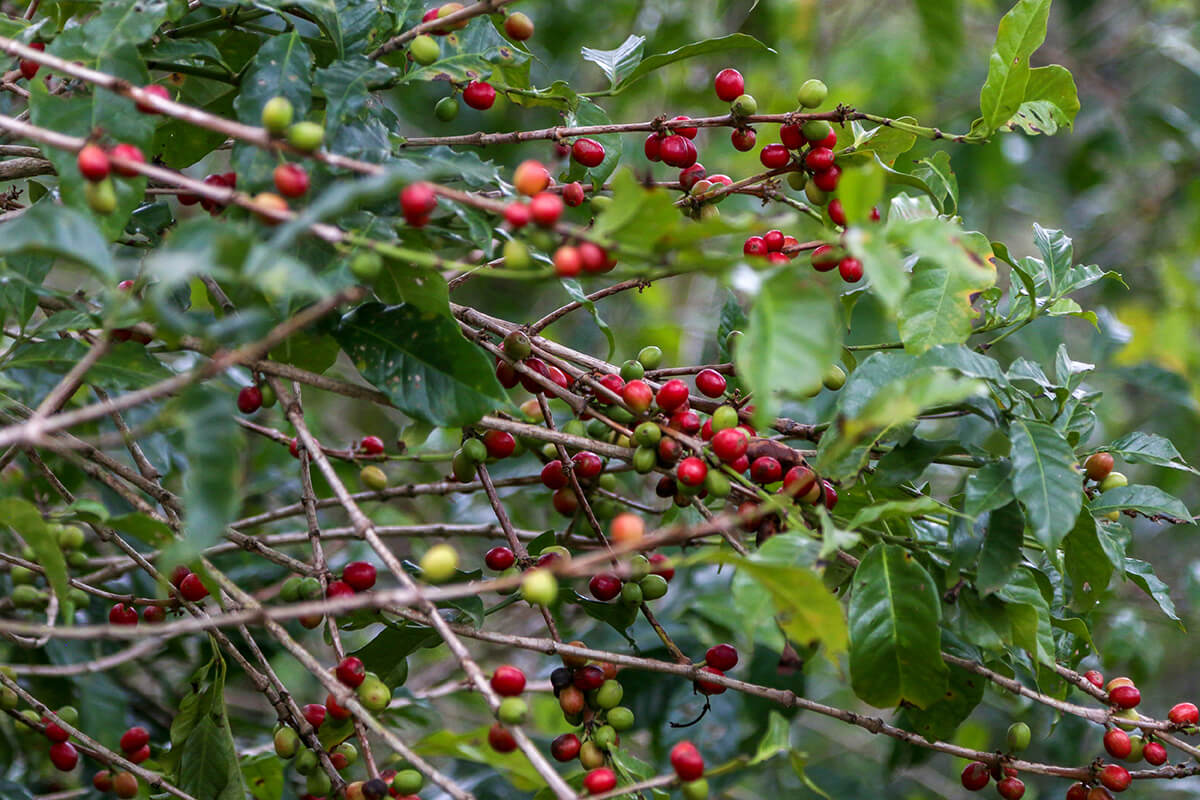
Explore the specialty coffee scene long enough and you’ll come across the term “microlot coffee.” Usually found in its natural habitat of third wave coffee sellers and roasters, the term always seems to mean something like “small,” “special,” or “exclusive.”
But why is a microlot so special?
In this article, we’ll take a look at why the term microlot exists and how it’s typically used by today’s coffee producers and buyers. As specialty roasters, we want to make sure you’re informed about what we’re offering when we say one of our roasts is a microlot, and why this term means so much more to us than a marketing gimmick.
Origins: From Farm to Roast
While the exact origin of the term isn’t clear, microlot has been introduced with a set of other terms in coffee production geared toward helping sellers and buyers differentiate coffees.
Terms such as strictly high grown, single origin, coffee microlot, estate grown coffee, small lot coffee, and so on were adopted to give producers and consumers a way to discuss the exclusivity and quality of a coffee. All of these terms are also used to help maintain a trail that connects coffee back to its source.
However, not everyone defines a microlot the same way (or spells it the same way…nobody seems to agree on microlot, micro lot, or micro-lot). Part of the confusion lies in the language barriers that are still a challenge for many in what has become a global distribution chain. But the lack of a standard definition is evident all the way down to coffee farmers and processors. The size, origin, and type of coffee included in a coffee microlot is defined differently in each stage of the supply chain, starting with the farmer.

The Talented Coffee Farmer
Many farmers will use the term microlot to describe a coffee lot that is from a single farm, single harvest, or even from a single area on their farm. Some will add this term to a small batch of specially-processed coffee (such as a honey-processed coffee).
In any case, for farmers, microlot typically refers to a traceable, exclusive green coffee that the farmer has produced through outstanding effort and great care. When a farmer offers a microlot, it typically represents the best of his crops, and he hopes for a much higher return for his labor (typically 1.5 to 3 times the average current market value of the green coffee) by selling directly to buyers or by adding the label to his product before processing or distribution.

The Dedicated Coffee Processor
Next, the processor has their own ideas about what constitutes a microlot. Sure, the farm may have different ideas about what the term means, but when the coffee is turned over to a processor, the rules may change.
A processor may set aside coffee from one days harvest or processing run and call it a microlot. Or they may use the term for a small lot of coffee from a single estate, single coffee varietal, single processing method, or single altitude. This microlot definition doesn’t always tell us too much about the quality and care with which the coffee beans were grown, but it does provide a processor with a decent means of distinguishing one set of coffee beans from another.

The Resourceful Coffee Distributor
After the processor, we have the distributor, co-op, or other method of getting the coffee into the hands of buyers (typically roasters). Some will carry on the coffee farmer’s microlot label with information about the farmer and the quality of the coffee. When this is the case, farmers typically get their recognition in the form of higher pay for their premium coffee (though not as high as a direct sale to a roaster) and the distribution chain remains transparent.
Other distributors carry on the processor’s labels, with varying degrees of traceability. Also, distributors can add their own microlot label. Often, this is a small or specific batch of green coffee that the distributor wishes to sell as a small or distinctive lot, but the quality and production care that went into the coffee is not immediately evident.
The Passionate Coffee Roaster (That’s Us!)

Finally, the roasters themselves have something to say about the coffee microlots they offer to their customers.
Some coffee roasters buy green coffee with the microlot label from distributors and pass on the label to their packaged roasts. While there is nothing wrong with this approach, it doesn’t help clarify the definition of the microlot label to the consumer
Others (like us) only use the term microlot when it maintains traceability and transparency in the supply chain and denotes a premium green coffee.
Defining Driven Coffee’s Microlot: Exceptional, Traceable, and Exclusive
At Driven Coffee, our approach to the microlot label comes in two parts. First, we want to introduce our customers to the most exceptional and unique specialty coffees we can find. Second, we want to be able to provide a traceable product that connects you to the source of your coffee.
When we sell one of our roasts as a microlot, we are offering a limited batch of single farm origin coffee, fully traceable and of the highest quality out there.
Keeping our coffee experiences fresh and exciting for our customers (and ourselves!) drives us to continue sampling the very best coffees we can find. We like to bring microlots in once per quarter, paying premium rates to do our part to reward farmers for their outstanding efforts in producing high quality coffees.
Microlots give us the opportunity to share more about our coffee’s origins with you. From details about specific farms and farmers to growing conditions and processing methods, buying and roasting microlots allow us to share the full story of your coffee’s journey from the farm to your cup.
Our microlots are very limited, and they can sell out quickly. Sign up for Driven’s newsletter or follow us on social media to learn about new microlot offerings as soon as they land in the shop. You won’t want to miss a single one!

More from Our Blog
The Decaf Decoded: How is Coffee Decaffeinated?
Despite the cry of some coffee aficionados that coffee without caffeine is not worth having,...
Nov
Counting Calories? Here’s What’s Really in Your Cup of Coffee.
While there is no such thing as a zero calorie cup of coffee, a cup...
Oct
Driven Coffee’s Guide to Corporate Coffee Gifts
The Perfect Boost for Clients and Employees We get it: thanks to the internet, you’ve...
Oct
Perfectly Brewed: How Many Scoops of Coffee Do You Need?
We’ve all been there. You find yourself staring at an empty coffee pot, and you’re...
Oct
Elevating Coffee Experiences: Driven Coffee Roasters Welcomes Pink House Alchemy
At Driven Coffee Roasters, we are unwavering in our commitment to delivering the very best...
Jul
French Press Recipe: A Clean and Flavorful Brew
As spring unfolds in Minnesota, we at Driven Coffee Roasters are embracing the longer days...
Apr